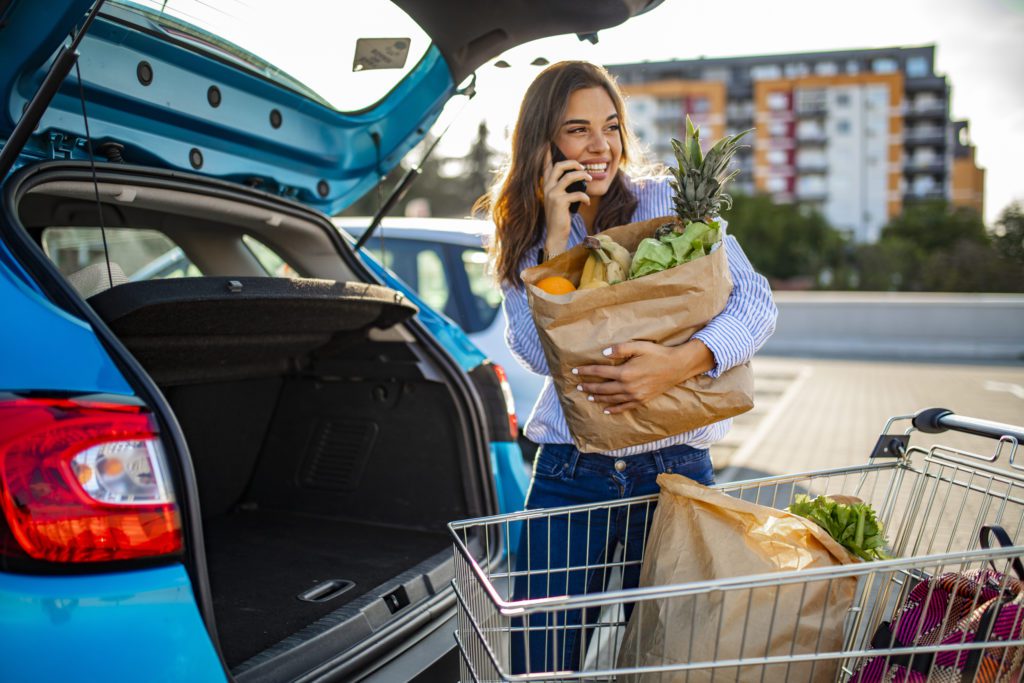
Communities across the world are being forced to isolate at home and only leave for essential reasons, such as picking up prescriptions, and grocery shopping.
With social media posting photos of empty shelves, you may be wondering what to buy and what to skip — or mitigate — during these resource errands. Here’s a suggested list of how to help guide your groceries budget.
Emergency kit essentials
The items you should have on hand during the COVID-19 pandemic should be the same items you should try to keep available in your home year-round.
The CDC recommends family emergency kits should include medical necessities like soap and antibiotic towelettes, gloves, antibiotic ointment, bandages, a thermometer, your prescribed medications, and nonprescription drugs, including non-aspirin pain relievers, period products, and stomach relievers. The CDC also recommends that families keep household products like disinfectants, bleach, paper towels, and writing supplies. You can purchase them at a local grocery store or online and shelves are still being stocked, so try not to stockpile. Many stores are setting limits on the amount of these items customers can buy, and they’re doing this to ensure there’s enough for everyone.
Groceries and non-perishables
Frozen fruits and vegetables are an easy alternative for healthy sides and canned goods can keep for an extended period of time. Beans are a great source of protein, and frozen chicken or turkey can last for months.
The U.S. Department of Agriculture offers the MyPlate app to help you see what a healthy, balanced diet can be for your specific needs.
Caretaking supplies
If you live with others you need to look after and take care of, in the event they become ill from COVID-19, you should essential caretaking resources available.
The CDC notes that caretakers will benefit from using disposable face masks and gloves, cleaning wipes and sprays, hand soap or an alcohol-based hand sanitizer, and laundry detergent. If your local grocery store is sold out of sanitizer, you may be able to make your own with rubbing alcohol (99%), aloe vera gel, and essential oil of choice. Other supplies, like tissues and extra hand towels, can also prove to be very effective.
Items You Don’t Need to Load Up On
It’s tempting to purcahse anything and everything left on the shelves when you walken into barren grocery stores, whether or not you’d even utilize it. Although there’s shortages due to a huge spike in demand, overall, essential items will be available throughout the quarantine. It isn’t practicle in stockpiling gallons of milk you wouldn’t drink.
Millions of Americans have stockpiled an enormous supply of toilet paper. While it’s an understandable concern to meet this basic need, it’s unncessary to stockpile a year’s supply. Try purchasing enough for a few weeks at a time.
If you typically drink water from your tap, the coronavirus is not a reason to single-use plastic. It’s imperative to still do what is best for the environment during these challenging circumstances. According to the Environmental Protection Agency, “The COVID-19 virus has not been detected in drinking-water supplies. Based on current evidence, the risk to water supplies is low. Americans can continue to use and drink water from their tap as usual.” However, if you typically drink bottled water due to water safety concerns in your household, continue to do so.
Securities offered through qualified registered representatives of MML Investors Services, LLC. Member SIPC. (www.sipc.org) 6 Corporate Drive, Shelton, CT 06484. (203) 513-6000.



